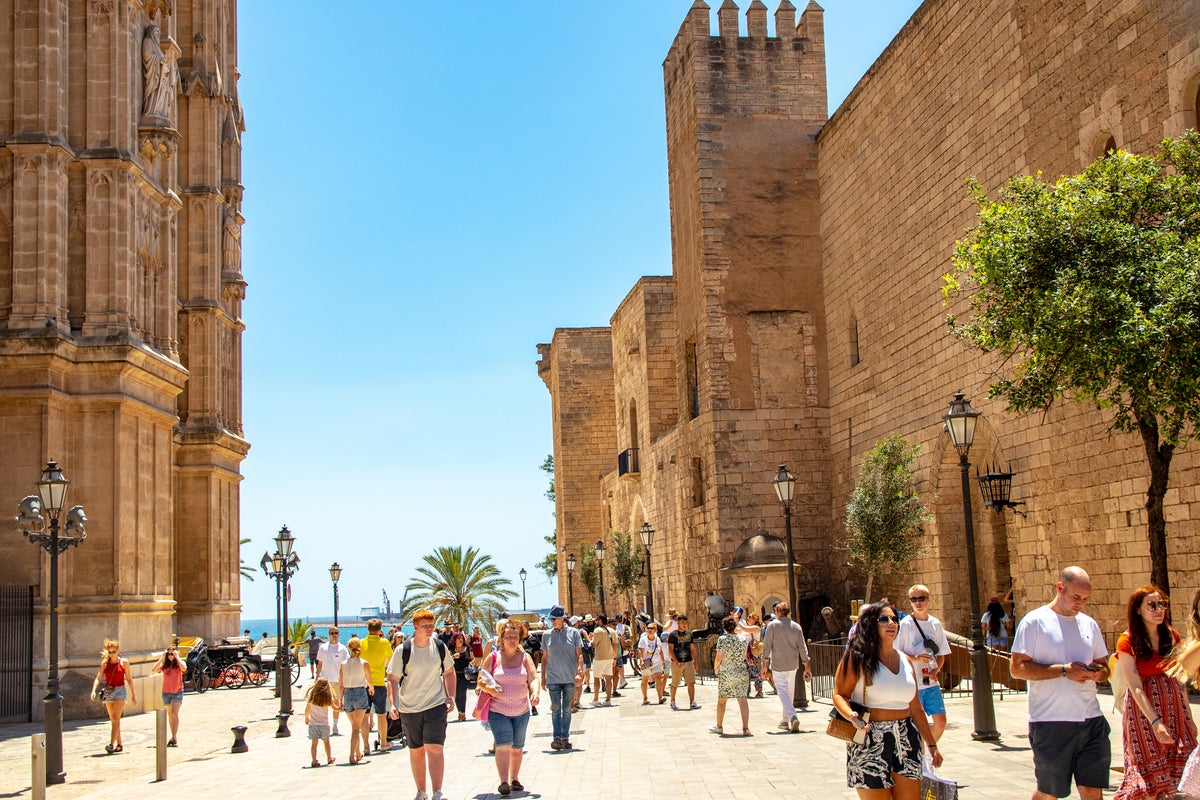Tourism agencies in Palma, Mallorca have criticised proposed new rules on large tour groups that would see them shrink by more than half, with warning the restrictions could lead to tourists being treated like “animals”.
Proguias Turístics de Baleares have bashed Palma City Council’s reported proposal to limit guided tours to 20 people per group.
While tour groups are currently limited to 70 people, the current average group size is between 30 and 50 people.
President of Proguias Turístics de Baleares, Gabriel Rosales, said that if the change was implemented, it could do serious damage to the local tourism industry, as well as see attractions such as the Cathedral of Mallorca dropping in revenue.
“With groups of just 19, it will be impossible to sell tours, as they’ll be financially unsustainable,” he said, according to The Olive Press.
There is also concern as to what would happen if visitors wanted to tag along to tours last minute and how the local police would regulate it.
“What happens when people join the group on the fly? Are we going to tag them like animals? Or hand out batons to keep out the ‘unauthorised’ tourists?” Mr Rosales asked.
The Balearic Islands’ Travel Agencies Business Association (Aviba) has also spoken out against the proposal, saying that a limit on group sizes could result in hiring more guides and increasing wages, meaning that the prices for tourists would rise, reports the Majorca Daily Bulletin.
Aviba CEO Pedro Fiol said this could have a knock-on effect on local businesses, who would see visitors spending less money.
Another regulation that would see guides having to visibly display identification with their full name and ID number, is also strongly opposed by Proguias Turístics de Baleares.
“This violates our privacy rights and clashes with data protection laws,” said Mr Rosales.
“Why should we have to reveal all this information when a police officer only needs to show a badge number? It’s like we’re being treated like criminals.”
Aviba and Proguías Turísticos have both previously spoken out against the city council for reportedly not consulting industry stakeholders on the proposal.
The associations said that splitting tour groups that usually cater to around 50 people into 20 people sizes, would require companies to hire three guides instead of one.
The tourist groups said that the real issues should lie in managing the flow of visitors, suggesting that instead of shrinking groups, to set up a better system of making sure groups avoid areas that are being visited by another tour at the same time.
The proposed rule is currently in a public comment period before it would escalate to the full council for a final vote.
Tourism groups in Spain have previously been outspoken against government regulations that they say could be “very damaging” to the tourism industry.
In December, the associations called on the government to make changes to a new Spanish law that requires the collection of extensive information from holidaymakers.
The new accommodation rules that took effect on Monday 2 December include a list of personal data required for everyone aged 14 or above, including names, passport numbers, home addresses and contact details to name a few.
Jorge Marichal, president of the Spanish Confederation of Hotels and Tourist Accommodations, said: “The measure, therefore, unloads its weight on ordinary travellers and generates a monumental administrative burden that falls on the employees of the accommodations, who are neither police officers nor security experts.”
“Hotels are not police stations. Receptions are not border posts. And receptionists should not be interrogators trained in the secret services.”
For more travel news and advice, listen to Simon Calder’s podcast











